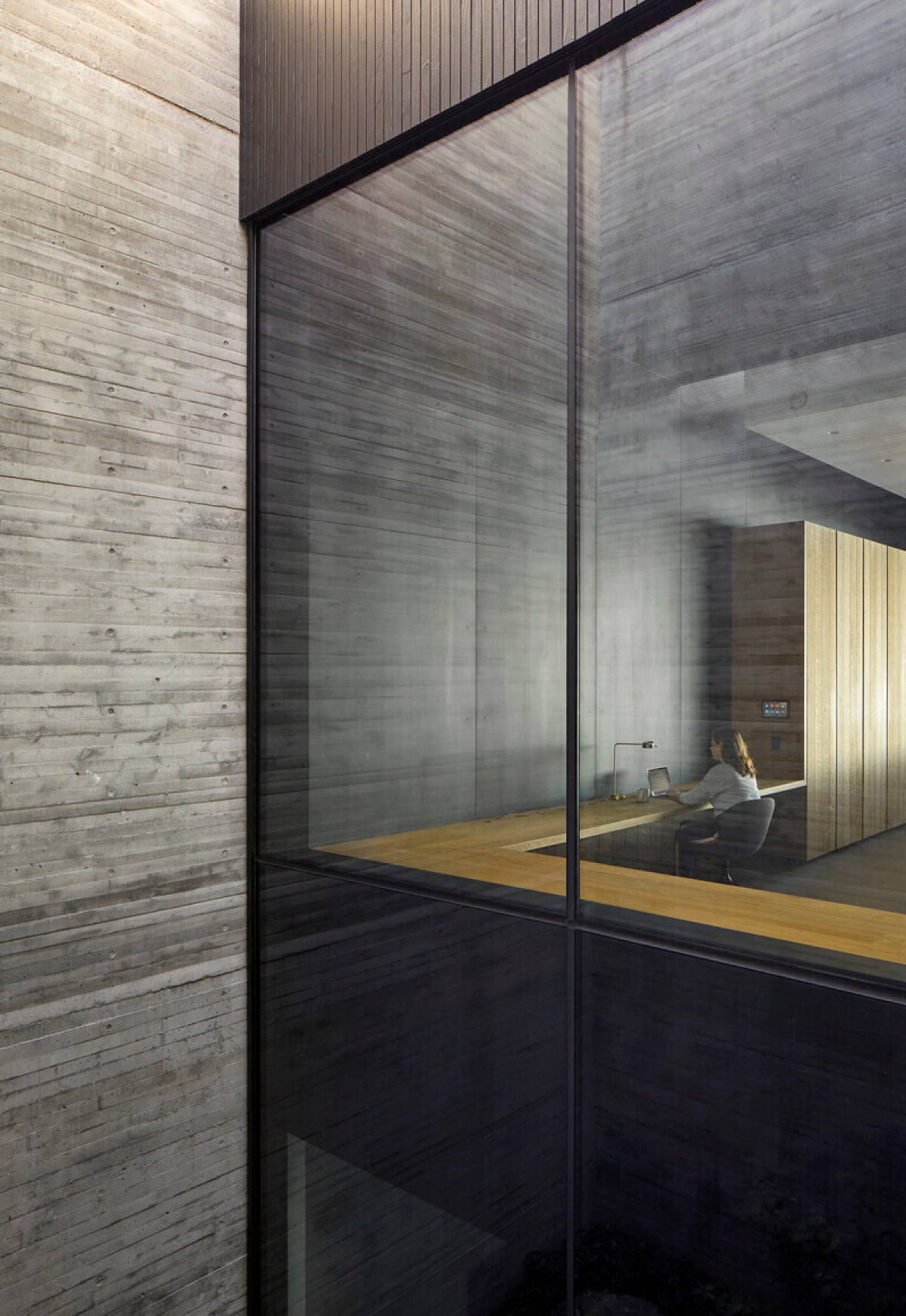21 Jun 2024

The clients approached McLeod Bovell at a pivotal stage in their lives as soon-to-be empty nesters. The evolving needs of a family became the impetus for how the designers imagined a house that could embody the state of transition at a conceptual and experiential level. The word liminal encapsulates ideas that have informed the design process: namely the feeling of inhabiting a transitory place; orchestrating movement through space; and dwelling in the moments between from and to...
The project site straddles the interstice between a suburban residential neighbourhood and West Vancouver’s natural stony seashore. Positioned on an expanded border between land and sea, the building form references the creatures that occupy this interstitial territory, whose physiology has adapted to such challenging conditions. In the same spirit, the house establishes itself in concrete, stained Accoya wood, and aluminium plate—enduring materials that can resist the battering effect of a shore environment.
Drawing from their experience negotiating complex topography and tight proximity with neighbours, McLeod Bovell has learned to abandon the reading of the project as a series of flat “elevations” which exist from an imaginary or inaccessible viewpoint. Instead, they embrace a scenographic approach where the house can be understood after having moved through and around it. The language of courtyards, cantilevered volumes, and extension of landscaped surfaces onto floor areas below dismantle boundaries between the house and the natural environment.
The changing outdoor atmosphere at the shore not only animates the house but is in turn animated by the house: views are framed between solid walls and walls of glass; their images are duplicated by a dark pool at the edge of the property and by the glazing of internal courtyards. Reflections and refractions of the outdoors evoke a feeling of being neither here nor there, but somewhere in between.
Fiche technique